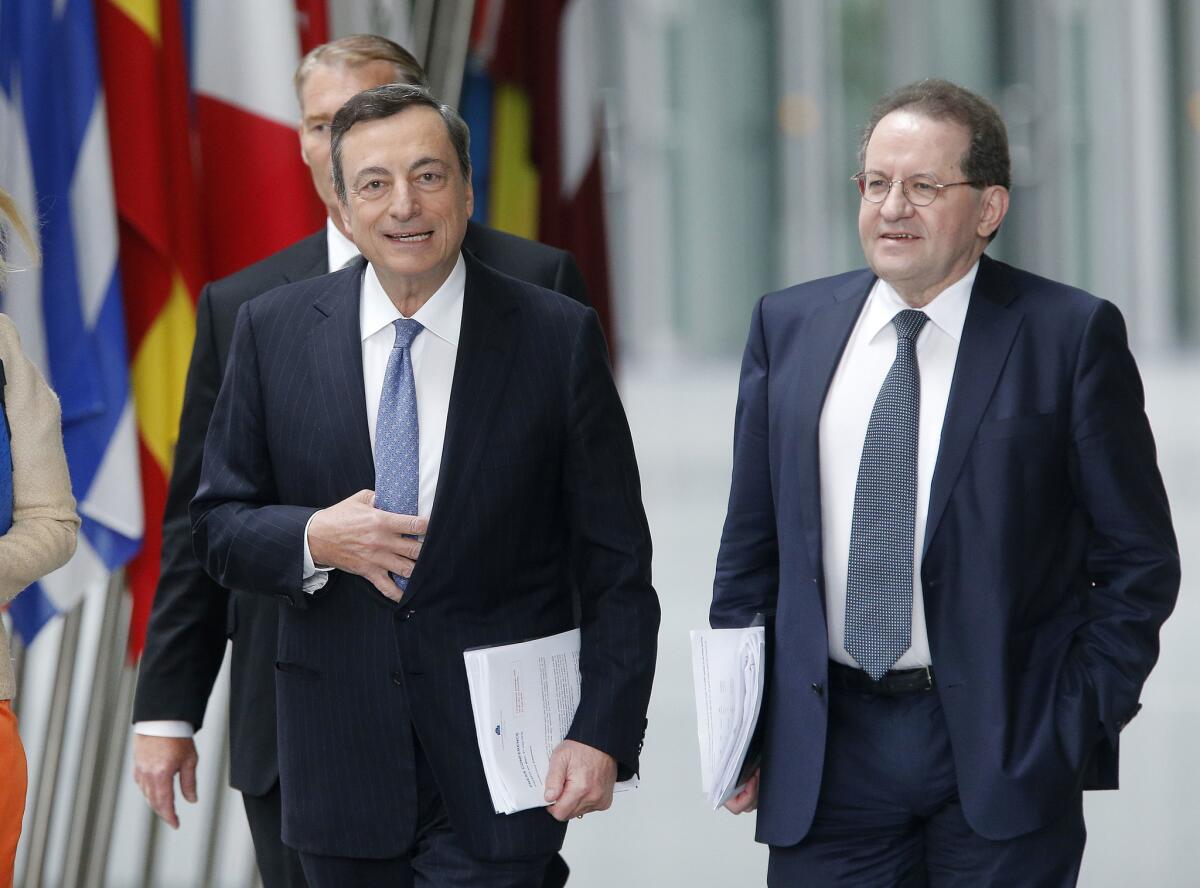European Central Bank keeps interest rates at record low

The European Central Bank left its key interest rates unchanged at record lows on Thursday as it assesses the impact on the economy of Britain’s vote to leave the European Union.
ECB President Mario Draghi is expected to use his post-decision news conference to underline the bank’s willingness to add to its stimulus programs in coming months if the economy appears to be taking a serious hit. The June 23 vote to leave the EU holds the potential to hurt trade between Britain and the remaining 27 European Union countries since they will have to negotiate new trade rules, a process that will take years.
Europe is enjoying a modest economic recovery, but inflation of 0.1% is abnormally low and unemployment is falling too slowly to make people in countries such as Spain and Greece feel good about the economy.
Draghi could indicate the bank’s readiness to extend its bond purchase stimulus of 80 billion euros ($88 billion) beyond March 2017. The bank has said it will keep buying at least through then, and longer if needed. The step pumps newly created money into the banking system. The hope is that will increase lending and raise inflation to levels more consistent with steady growth.
The bank’s benchmark rate for lending to banks is zero. It has imposed a negative rate on deposits left with it by commercial banks of 0.4%, a penalty intended to push them to lend the money.
Analysts expect Draghi to hold off on announcing more stimulus at least until the Sept. 8 meeting, when the ECB will have new economic forecasts compiled by its staff.
On Thursday, Draghi may also choose to address concerns that the ECB will run out of bonds to buy. The ECB could expand the list of assets eligible for purchase, for instance by raising the limits of how much of any one bond issue or any one borrower’s outstanding debt it can buy. The ECB’s massive purchases have driven bond prices up and yields, which move in the opposite direction, down. The result is that wide swaths of the European government bond market now trade at yields below zero. That can be a problem for the ECB’s purchases, since it has a self-imposed rule not to purchase assets yielding less than its deposit rate, which is itself negative at minus 0.4%.
He may also say something about Italy’s banks. Prime Minister Matteo Renzi has floated the idea of using government money to bail them out, which could provoke a conflict with new European Union rules designed to limit the burden of rescuing banks on taxpayers’ wallets.
ALSO
A U.S. consumer panned a Chinese product on Amazon. Then things got crazy
Elon Musk reveals Tesla’s ‘master plan’: It includes trucks, buses and ride sharing
More to Read
Inside the business of entertainment
The Wide Shot brings you news, analysis and insights on everything from streaming wars to production — and what it all means for the future.
You may occasionally receive promotional content from the Los Angeles Times.










